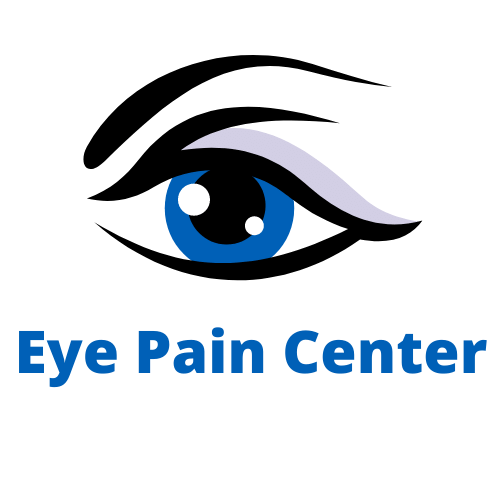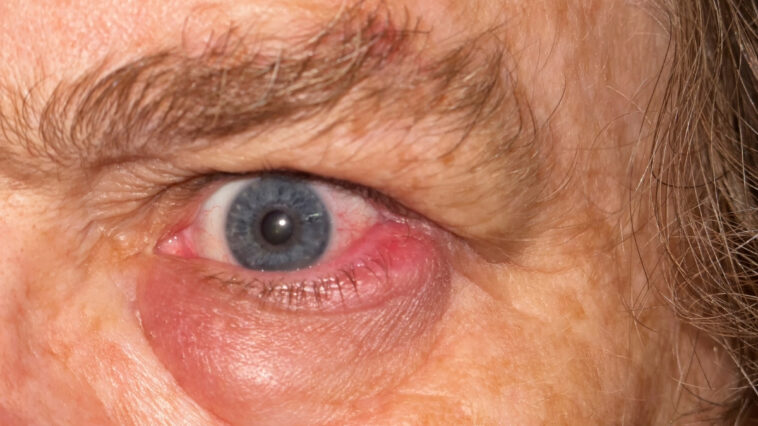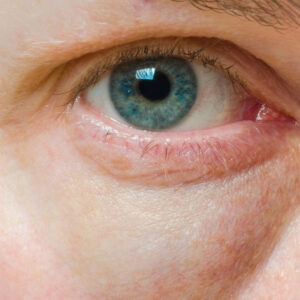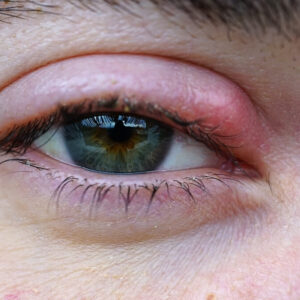What is a Swollen Eyelid?
A swollen eyelid is a condition in which the eyelid becomes inflamed or enlarged. Several possible causes of a swollen eyelid include infection, allergic reaction, injury, or a glandular disorder.
A swollen eyelid can be uncomfortable and make it difficult to see. It may also accompany other symptoms such as redness, itching, or discharge. If you have a swollen eyelid, you should consult an ophthalmologist for an evaluation and treatment.
Common Causes of Swollen Eyelids
There are several common causes of swollen eyelids, including:
- Allergies: Swelling of the eyelids can be caused by an allergic reaction to something, such as pollen, dust, or pet dander.
- Infection: An infection, such as the pink eye (conjunctivitis) or stye, can cause the eyelids to swell.
- Trauma: Swelling of the eyelids can be caused by an injury to the eye or surrounding area, such as a black eye.
- Eyelid dermatitis: This is a skin condition that causes inflammation of the eyelids.
- Thyroid problems: An overactive thyroid (hyperthyroidism) can cause eyelid swelling.
- Crying: Crying can cause the eyelids to swell due to fluid build-up in the area.
- Sleep: Swelling the eyelids can be a regular part of the sleep process and is often temporary.
- Aging: As we age, the skin around the eyes becomes thinner, making it more prone to swelling.
If you are experiencing swollen eyelids and are unsure what is causing them, it is a good idea to see an eye doctor for a proper diagnosis and treatment.
Why Do Eyes Swell After Crying?
Crying can cause swelling in the eyes because crying can cause fluid to build up in the soft tissue around the eyes. When you cry, your tear glands produce a liquid called tears containing water, oils, and other substances. These substances can accumulate in the soft tissue around your eyes, leading to swelling.
Crying can also cause the blood vessels in your eyes to dilate, contributing to swelling. Additionally, crying can cause inflammation in the eye area, leading to swelling. Overall, the swelling that occurs after crying is a normal response to the release of emotional stress.
What are the Symptoms of Swollen Eyelids?
The main symptom of swollen eyelids is, of course, swelling of the eyelids. This swelling can be mild or severe and may affect one or both eyelids. Other symptoms that may accompany swollen eyelids include:
- Redness of the eye or eyelid
- Itching of the eye or eyelid
- Pain or discomfort in the eye or eyelid
- Blurred vision
- Discharge from the eye
- Sensitivity to light
- A feeling of pressure in the eye
- A gritty sensation in the eye
You must see an ophthalmologist for a proper diagnosis and treatment if you are experiencing any of these symptoms besides swollen eyelids.
Available Treatment Options for Swollen Eyelids
The treatment for swollen eyelids will depend on the underlying cause of the swelling. Some potential treatment options for swollen eyelids include:
- Allergy medications: If allergies are causing the swelling, over-the-counter or prescription allergy medications may help reduce swelling and other symptoms.
- Infection treatment: If an infection is causing the swelling, your doctor may prescribe antibiotics to treat the infection.
- Cold compresses: If your eyelids are swollen, applying a cold compress can be an effective remedy. Cold compresses will help reduce the swelling and inflammation of the affected eye.
- Warm compresses: A warm compress may help reduce swelling and inflammation and may also help to relieve pain.
- Topical creams: Your doctor may recommend a topical cream or ointment to help reduce swelling and inflammation.
- Surgery: In some cases, when home remedies and medications are not enough to treat swollen eyelids, surgery may be necessary. During a procedure of this kind, an eye doctor will remove any stye that may be causing the swelling or other obstructions that could be contributing to the problem.
If you are experiencing swollen eyelids, you must see a doctor to determine the cause and receive proper treatment. Do not attempt to treat the condition alone, as this could worsen the problem.
10 Tips for Preventing Swollen Eyes
10 Tips to prevent swollen eyes are the following:
- Avoid allergens: If you have allergies that can cause swollen eyes, try to avoid exposure to allergens as much as possible. This may include staying indoors when pollen counts are high, using air filters in your home, and keeping windows and doors closed.
- Wash your face: Keeping your facial area clean is key; wash your face regularly, particularly before bedtime. This will help remove any oil, dirt, or cosmetics that could clog up your pores and cause puffiness in the eyes.
- Get enough sleep: A lack of sufficient sleep can cause swollen eyelids and bags under the eyes. To ensure you get enough rest, aim for 7-9 hours of sleep each night to help prevent these issues from occurring.
- Stay hydrated: To reduce swelling in the delicate eye area, it is essential to stay hydrated, as drinking plenty of water keeps your body adequately hydrated and can help to reduce any puffiness or to swell in the area.
- Eat a healthy diet: To reduce the swelling, it is essential to maintain a balanced diet with plenty of fruits and vegetables. Eating a healthy, nutrient-rich diet will help keep your body functioning optimally, which helps to manage the swelling of your eyelids.
- Manage stress: High-stress levels can contribute to swollen eyes, so try to manage stress through relaxation techniques such as deep breathing or meditation.
- Use a humidifier: Swollen eyelids are commonly caused by excessive dryness, which can be alleviated with a humidifier. A humidifier helps add moisture to the air in your home, relieving symptoms associated with swollen eyelids.
- Use a saline solution: Washing your eyes with a saline solution can help to reduce swelling and irritation.
- Avoid rubbing your eyes: Swollen eyelids can be caused by further irritating them from allergies, contact lenses, too much rubbing, or irritation from dust and dirt. If your eyelids are swollen, avoiding the further aggravation of the area is best by not rubbing them.
- Protect your eyes from the sun: Swollen eyelids can be prevented by wearing sunglasses or a hat when outdoors to protect your eyes from the sun. The sunglasses or hat will shield your eyes, preventing the sun’s rays from irritating and causing swelling in your eyelids.
When to See an Eye Doctor for Swollen Eyelids
It is generally a good idea to see an eye doctor if you are experiencing swollen eyelids, especially if the swelling is accompanied by other symptoms such as redness, pain, discharge, or vision changes. A doctor can determine the underlying cause of the swelling and provide appropriate treatment.
You should consult an ophthalmologist if you are experiencing any of the following symptoms in addition to swollen eyelids:
- Severe pain
- Vision changes
- Discharge that is thick or yellow in color
- Redness or swelling that is spreading beyond the eyelid
- A fever
Getting prompt treatment for swollen eyelids is essential, as this condition can sometimes signify a more serious problem. Do not wait to see an ophthalmologist if you have any of the above symptoms.
Summary
Swollen eyelids can be caused by various factors, including allergies, infections, trauma, eyelid dermatitis, thyroid problems, crying, sleep, and aging. Symptoms of swollen eyelids may include swelling, redness, itching, pain or discomfort, blurred vision, discharge, sensitivity to light, a feeling of pressure in the eye, or a gritty sensation.
If you are dealing with swollen eyes, taking a few preventative steps can help. An important step is to determine and eliminate any potential allergens. Additionally, washing your face regularly, sleeping enough, drinking plenty of water, and eating a healthy diet all play a role in keeping your eyes from becoming swollen.
Plus, managing stress levels, using a humidifier, applying saline solutions, and avoiding rubbing are other useful tips for avoiding eye puffiness. Lastly, wearing sunglasses outdoors is essential to protect your eyes from sun exposure.
If the swelling persists for more than a few days, it is a good idea to see an opthalmologist for a proper diagnosis and treatment.






